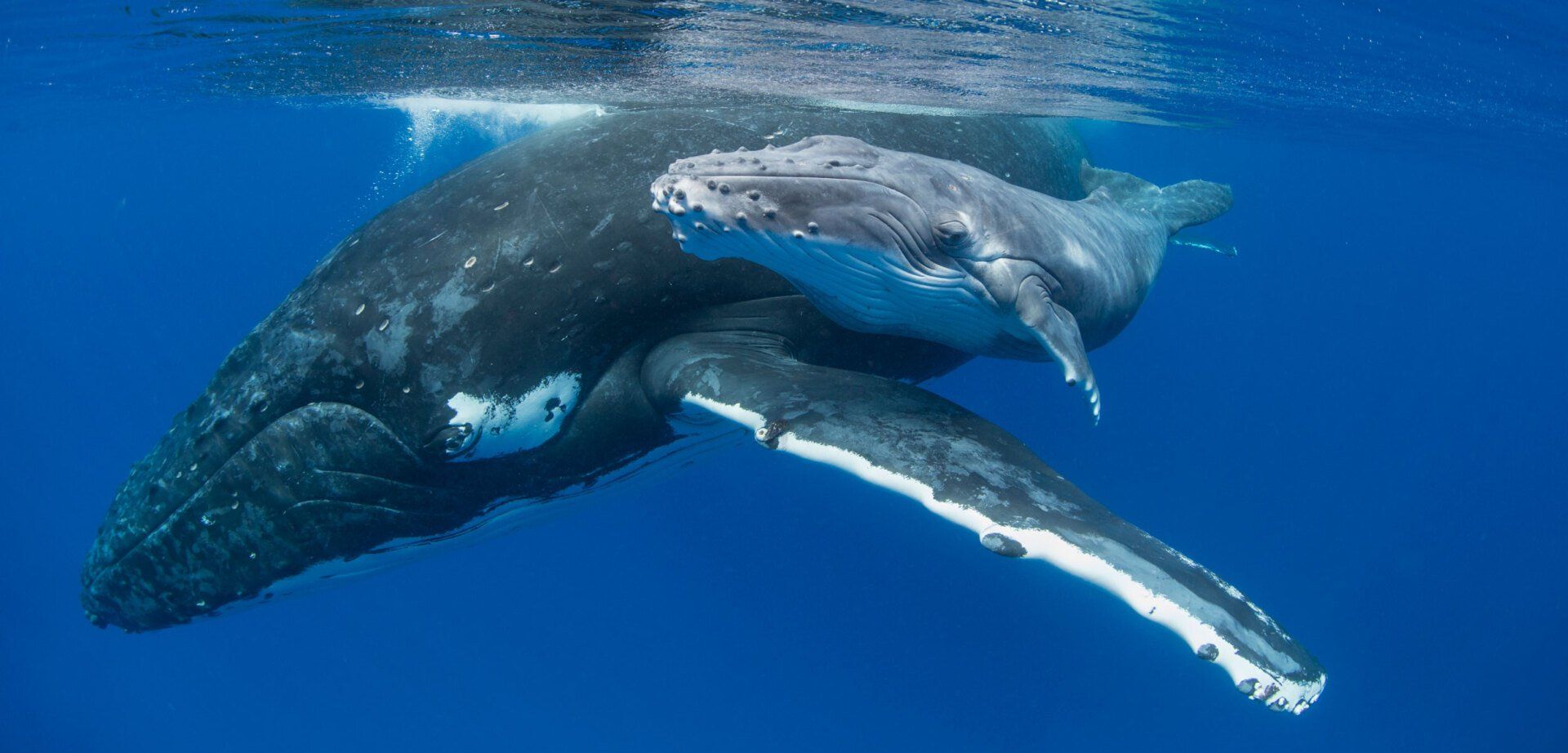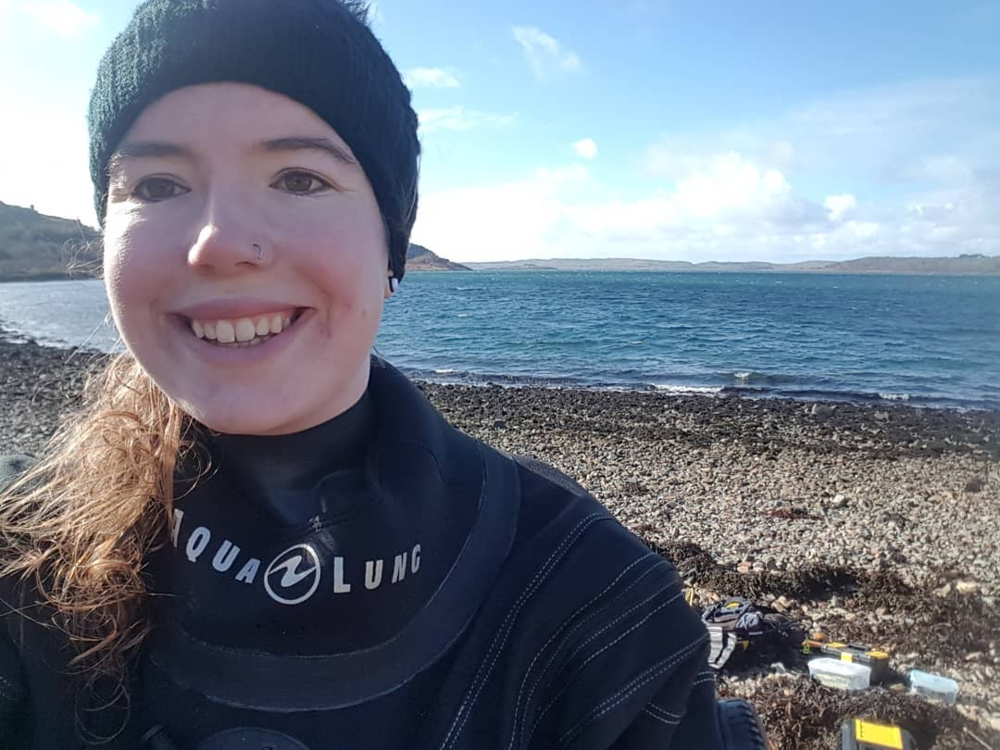Marine mammals are apex predators and keystone species in the marine environment. They can provide vital information about ecosystem productivity and environmental quality through monitoring their reproductive success. Pregnancy rates and calving rates can provide information about the population health and growth potential of marine mammals.
Endocrinological profiling techniques allow scientists to measure the blubber progesterone concentration, which is indicative of pregnancy in baleen and toothed whales. By collecting and analysing blubber samples, pregnancy status of free ranging cetaceans can be determined in a readily obtainable and non-lethal way.
In the Gulf of St Lawrence (GSL), Canada, the population dynamics of baleen whales have been studied since the 1980s by the Mingan Island Cetacean Study. The gulf is a major feeding ground for baleen whales, including humpback whales, and has experienced major ecosystem changes in water temperature, plankton production and sea ice volume. The humpback whales have shown behavioural plasticity by responding to the ice breaking up earlier in their breeding grounds (due to an increase in sea surface temperature), which had led to their migration timing shifting to around 4weeks earlier than in 1984. They have demonstrated further behavioural plasticity through shifting their diet to higher trophic level prey.
By combining long term survey efforts of photo identified individuals, environmental data and endocrine profiling, the population level impacts, or resilience to ecosystem changes in the GSL humpback whales were assessed.
185 blubber biopsy samples collected from114 individual photo identified females from 2004 to 2017 were used to measure progesterone levels, which reflect their pregnancy status. The results showed that pregnant females had higher progesterone concentrations than females in other reproductive classes.
Annual boat surveys since 1982 have identified 476 individuals through photos. These surveys were also used to determine the mean age of the females first pregnancy, which was 12 years. The records also showed a significant decrease in annual calving rates. 39% of identified pregnancies were unsuccessful over 15 years. The average annual pregnancy rate was 37%, and the average annual calving rate was 23%. A high variation in pregnancy rates was seen, ranging from 25-63%. The probability of seeing a female with a calf was related to the favourable environmental conditions in the previous year.
The GSL environmental data provided information about phytoplankton, zooplankton and fish in the region e.g. herring spawning stock biomass (SSB) (tons), zooplankton biomass and phytoplankton bloom magnitude. Over the 15-year study period, the average herring SSB reduced in the GSL and some zooplankton species reduced in abundance. Phytoplankton bloom magnitude, copepod and capelin abundance were highly variable over the study. Various environmental changes have occurred during the study period in the GSL, which have led to a decrease in environmental productivity. In 2010, a strong warming event began. Oxygen concentration anomalies have been observed, including the lowest ever recorded in 2018. Changes in nitrate patterns have also occurred, which are associated with intrusions of warm, salty water.
During the years of poor environmental productivity, thus prey abundance, females may have been unable to accumulate enough energy reserves for the successful completion of their pregnancy and/or lactation. It is thought that the increase in poor environmental productivity led to a decline in calving rates from 40%in 2004 to 20% in 2018.
Although the humpback whales have shown some behavioural plasticity, a reduction in calving rates could indicate that this population does not show as much resilience as previously thought.However, it could be possible that a reduction in their reproductive out put during unfavourable conditions may be in favour of their future survival.
This study showed that changes in environmental conditions have led to variation in the population pregnancy and calving rates, highlighting the importance of long-term studies and the need for continuous monitoring.
References:
Kershaw, J. L., Ramp, C. A., Sears, R.,
Plourde, S., Brosset, P., Miller, P. J. O and Hall, A. J. (2020). Declining
reproductive success in the Gulf of St. Lawrence’s humpback whales ( Megaptera
novaeangliae
) reflects ecosystem shifts on their feeding grounds. Global Change
Biology
. DOI: 10.1111/gcb.15466















